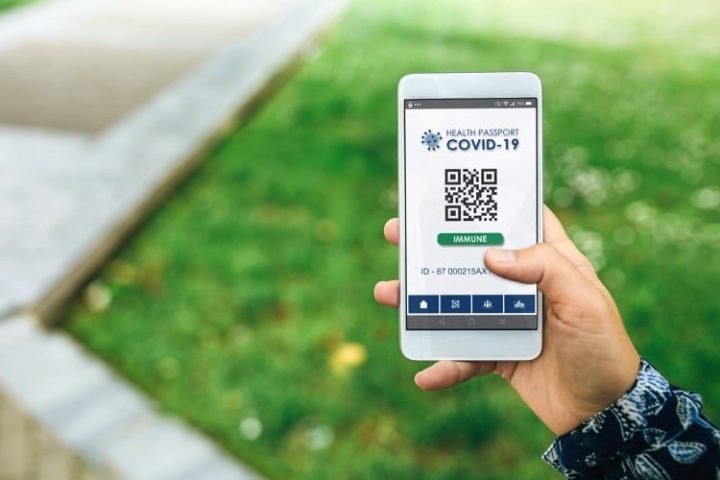
In yet another demonstration that many of our liberties are under assault not only from government, but also from big businesses, an increasing number of businesses are either requiring or considering requiring customers and employees to receive vaccinations against the COVID-19 virus.
The primary argument advanced in favor of such an imposition is that this requirement will lead to more and more businesses and entertainment venues opening up to large crowds. Despite this argument, many have raised various concerns and objections to any such requirement from either government or private businesses.
For now, the Biden administration is not pushing for the federal government to require what are commonly referred to as vaccination passports — or proof that one has received vaccination from Pfizer, Moderna, or Johnson & Johnson. And while few state governments have moved toward attempting to force citizens to get vaccinated in order to attend large gatherings and the like, two states — California and New York — are requiring either a vaccination “passport” or a negative COVID test in order to attend events such as major league baseball games and concerts.
But, fortunately, most states are not — yet — following the New York and California models. For example, Governor Brad Little of Idaho, a Republican, has publicly opposed any such passport policy. “Idahoans should be given the choice to receive the vaccine. We should not violate Idahoans’ personal freedoms by requiring them to receive it. Vaccine passports create different classes of citizens,” Governor Little said, shortly after signing an executive order banning any such vaccination requirement for those seeking public services in Idaho. The governors of other states, such as Ron DeSantis in Florida and Greg Abbott in Texas, have issued similar executive orders to their state agencies.
But what about private companies? So far, few businesses are requiring employees to show proof of vaccination, although many are encouraging their employees to get the shots. Walmart, for example, provides the shots at their stores, and even gives associates two hours of paid time off to get the shots. Amazon is even paying some employees financial compensation if they get immunized.
A survey conducted by Mercer Total Health Management found that, as of now, 73 percent of employers have no plans to actually require vaccination as a condition of employment.
What is probably of greatest concern to the average American is what the airlines are going to require. If the airlines are all requiring proof of vaccination, a person who does not wish to get one of the COVID vaccines may simply not be able to fly at all. This could make things very difficult for people who need to fly for work, or for a family emergency. After all, a family emergency is not something one can often plan for, and no one could obtain a shot — or two shots — in such an emergency situation.
Another question is, how would someone actually prove he or she had obtained a shot or shots? As is typical, many are advocating giving those who have been vaccinated an “app” on their smartphone as a method of proof. Of course, this raises several problems. First, many Americans do not have a smartphone to put an app on. Besides that, such phone apps could lead to personal, private information being compromised after one’s entrance into a sports stadium, an airport boarding gate, and the like. Many Americans who use credit cards on a regular basis have experienced someone — somehow — stealing the card’s numbers to make purchases in a high-tech theft. One would have to be exceptionally naïve to think that such could not happen with these “vaccine passport” apps.
And, what about individuals who have had the coronavirus? Why should they have to get a shot at all, especially two shots, to prove invulnerability to the virus? Many medical experts believe that once a person has had the virus, he has immunity. There is a case, recently cited by Senator Rand Paul (R-Ky.), of a woman who had the Spanish Flu as a young woman in 1918 still having the antibodies to that virus when she was 90 years old. Other medical experts say a second shot for a person who has had the virus is especially superfluous. One might add that taking a shot, which could lead to serious reactions, when one has no realistic chance of contracting the virus again, is cruel and fanatical.
Some have noted that the vaccines only have emergency federal approval, and because of that, businesses would be on shaky legal grounds to require it for either employees or customers. While this should settle the issue, we have seen far too many instances in recent years of legality being ignored. Who would have ever thought that governors and mayors would have asserted authority to require masks in their communities, told persons over a certain age they could not leave their homes, and shut down businesses and churches?
It should be obvious to anyone other than a fanatic that each individual should be left to make the decision on whether to take any of these vaccines.



